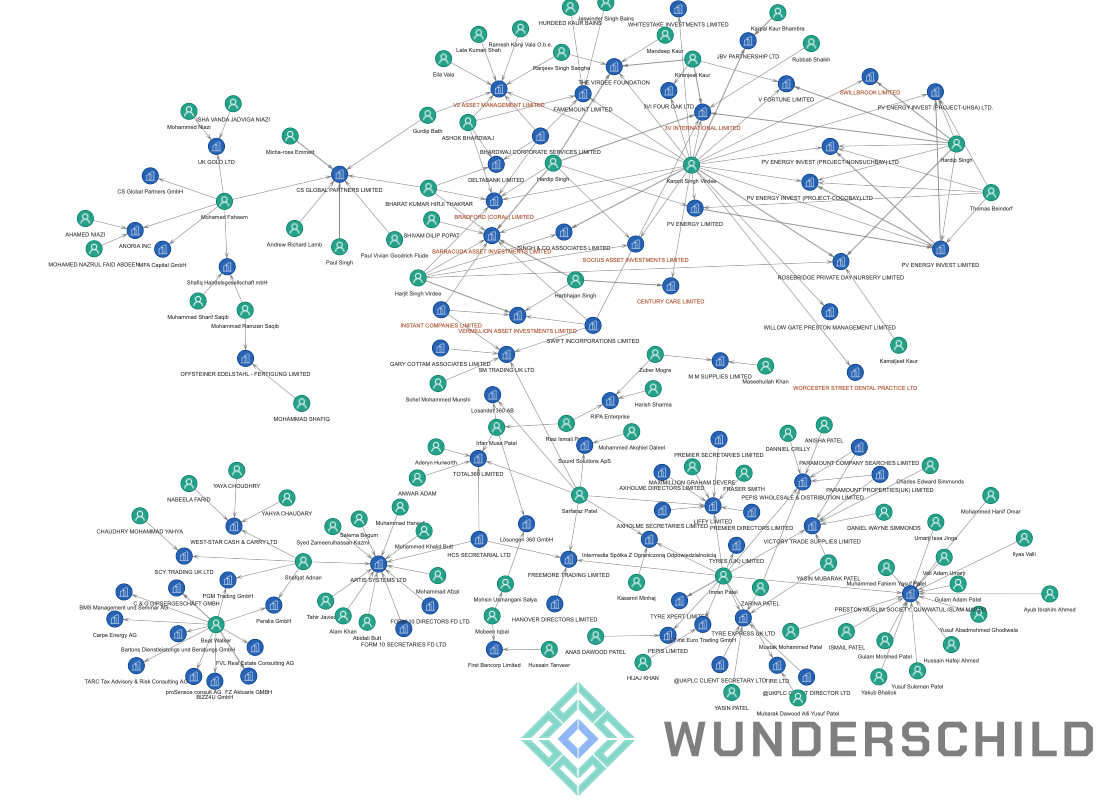
Peter Singh Virdee, a prominent investor nicknamed Batman is on his way to be extradited to Germany following an order issued by the Westminster Magistrates Court. Virdee is charged in Germany for his alleged involvement in a global VAT fraud scheme. What does Batman’s case show about the UK-EU post-Brexit cooperation?
The troubles for Batman started in 2016 when he was arrested at Heathrow airport and faced extradition to Germany for a VAT fraud of 125 million euros. German court charged him with a possible 15 years jail sentence for VAT fraud on CO2 trades. The German prosecutors alleged he had extensive contacts abroad, especially in India, Pakistan, Dubai (UAE), Antigua, and St. Kitts and Nevis. Batman was one of the “central organisers” of a criminal network of fraudsters. He appeared initially in 2016 appeared before Westminster Magistrate’s Court and was released on 160 thousand euros bail.
Virdee is the founder and director of B&S Property, which claims to have more than 4.6 billion euros in global assets. The company is registered at an address in Mayfair, along with the Peter Virdee Foundation, which describes itself as a philanthropic organisation. He was profiled in the Evening Standard in 2008 as one of London’s rising property stars and a key donor for the Conservative party. Virdee posed with high profile political personalities like Alex Salmond, the former leader of the Scottish National Party.
Under the current indictment, Batman is accused of financing the VATfraud with carbon credits, using a Frankfurt-based company that led the carousel and a Seychelles-registered firm. German justice has already sentenced several individuals associated with Batman in this scam to jail terms ranging from 27 months to eight years. Virdee faces up to 10 years behind bars. Batman claimed that he is the victim of abusive prosecution by a dishonest German prosecutor, who granted special conditions for one of his co-defendants that agreed to cooperate with the justice. District Judge Michael Snow rejected claims characterising them as "utterly without merit."
Batman’s case brings to light unique insights into the prosecution of VAT fraud cases.
- British courts will not show any mercy in VAT fraud cases
- EU countries have little or no corporation when investigating or prosecuting transnational financial crime
- The recently established European Public Prosecutor’s Office did not show any competency in VAT fraud cases.
“Criminals, By Nature, Are A Cowardly And Superstitious Lot.”
Batman Comics
Focus: Mohsin Salya
Mohsin Salya is another British citizen appearing as a codefendant in the Virdee case. He had been initially sentenced in 2016 by a German court to three years and three months in prison. Salya turned himself to German authorities in 2017. He agreed to cooperate with German authorities in return for a more lenient sentence and an agreement that he could return to his home in Dubai.
Salya owned three apartments in the Discovery Gardens development in Dubai. Salya said the properties were bought long before his involvement in the fraud that led to his jail term.
Salya is not a novice in VAT fraud. In 2002, Salya’s accident claims and mobile telephone import business, Continental Claims Consultants, went into liquidation owing more than 600 thousand euro in unpaid VAT.
The link between Virdee and Salya appears to be another British person, Sarfraz Patel, whose name appears related to a few companies cited in other prominent VAT fraud cases.

Focus: EPPO
Formed in 2017, the European Public Prosecutor’s Office is an independent and decentralised prosecution office of the European Union, with the competence to investigate, prosecute and bring to judgment crimes against the EU budget, such as fraud, corruption above 10,000 Euros or serious cross-border VAT fraud above 10,000,000 Euros.
Concerning VAT fraud cases, the EPPO has a huge backlog of matters to persecute, at least in theory. The Virdee case is an example of fraud that should have been prosecuted by the EPPO. The real issue is that while the Luxembourg-based European Prosecutor is competent in trans-national VAT frauds, there is still no European law enforcement agency able to investigate such cases. What the EU needs is the equivalent of the American Federal Bureau of Investigation. But, creating such an agency seems to be too big a challenge for Brussel bureaucrats.
Word on the street: the VAT mafia
The Peter Virdee matter and other big cases of VAT evasion are clear proof that some organized criminal groups across the globe morphed into a transnational crime syndicate. Traditional organized crime groups had very less contact with each other as their strategy was territorial. Obviously, such joint ventures were reported since the 1980s between various groups, but the type of cooperation observed in the area of economic crime is unprecedented. The U.S Treasury attempted in 2012 to label such multi-national crime groups. It sanctioned the so-called Brothers’ Circle, a group involving Russian, Japanese and Italian crime figures. By 2017, the same agency took out from its list of crime groups the above-mentioned organisations. Seemingly, the Brother’s Circle was more a glorified concept than a real organisation. Transnational crime groups work more like a team of experts with various skills. It does not consist in the merge of existing groups. Some law enforcement agencies made the wrong assumption that different crime groups with different cultures can join forces in one syndicate. The risks entailed by such a move would be too big and not bearable. Transnational syndicates should be seen as teams of professional contractors that join their force on a given period of time for a given project. Each “contractor” might have allegiance to an established group, but for a certain amount of time, will do a secondment in a transnational project.
The VAT fraud brought some relevant cases of such collaboration. In the case of the CO2 emission market, French-Israeli gangsters worked closely with Chinese money launderers or with enforcers of Maghrebian descent. Also, financial criminals from the Gulf region managed to collaborate with British-Pakistani or British- Punjabi scammers. The VAT fraud on telephonic traffic involving Telecom Italia showed how Italian organized crime, British entrepreneurs and Russian bankers were joined in the same fraudulent endeavour.